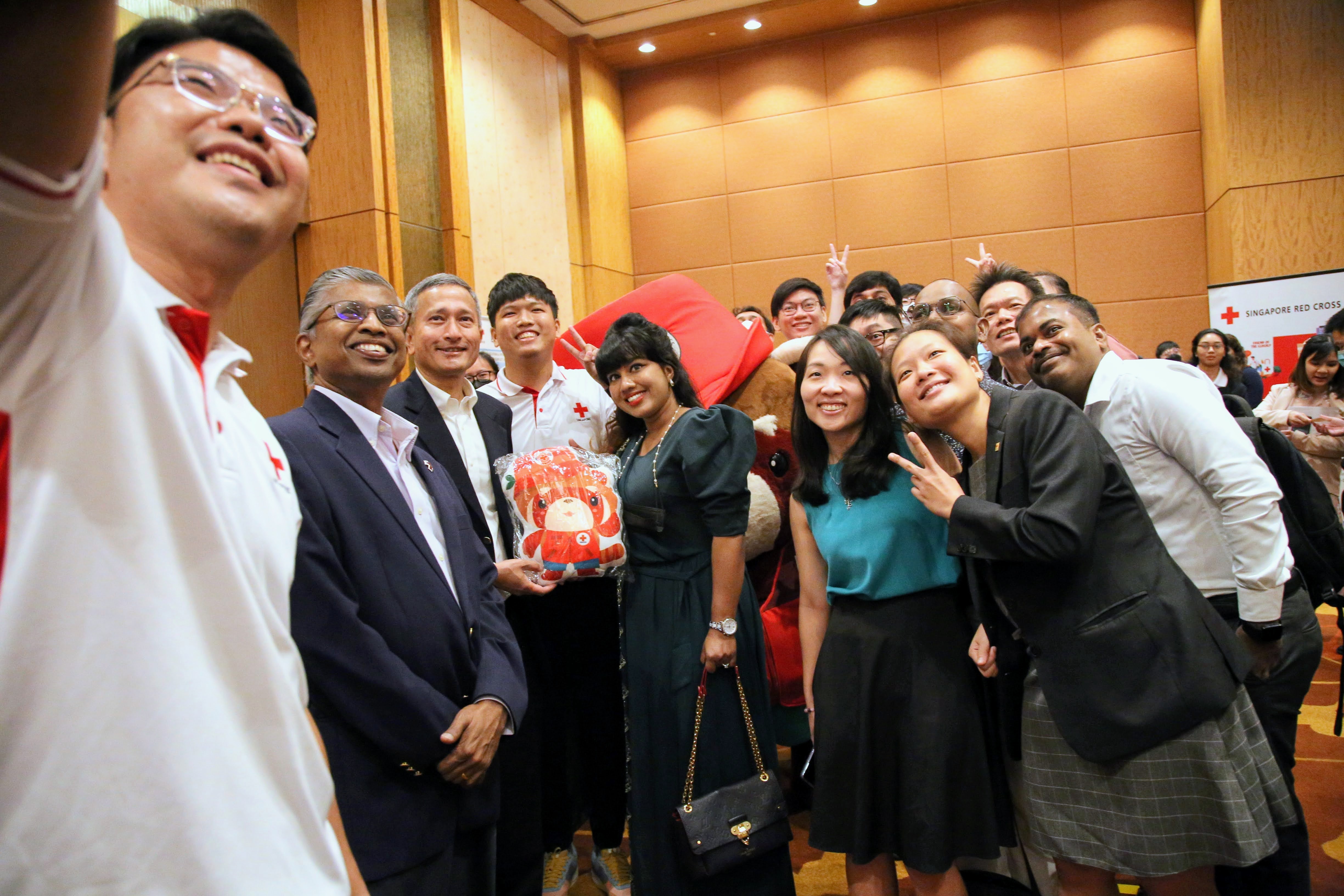
Key figures in the humanitarian and health sectors convened to exchange views on the immediate consequences and long-term implications of the humanitarian actors’ response towards COVID-19 at the 7th Humanitarian Conference organised by the Singapore Red Cross (SRC), at the Marina Bay Sands and online, on 10 September 2022.
The theme of this year’s conference was “Humanitarian Response to COVID-19: Anxiety & Hope”, reflecting the immediate response in the midst of the anxiety caused by the pandemic and how humanitarian organisations can be better positioned to bring hope to vulnerable communities. Over 300 delegates from the public and private sectors participated in the event; including volunteers, youth members and humanitarian workers of the Red Cross & Red Crescent Movement.
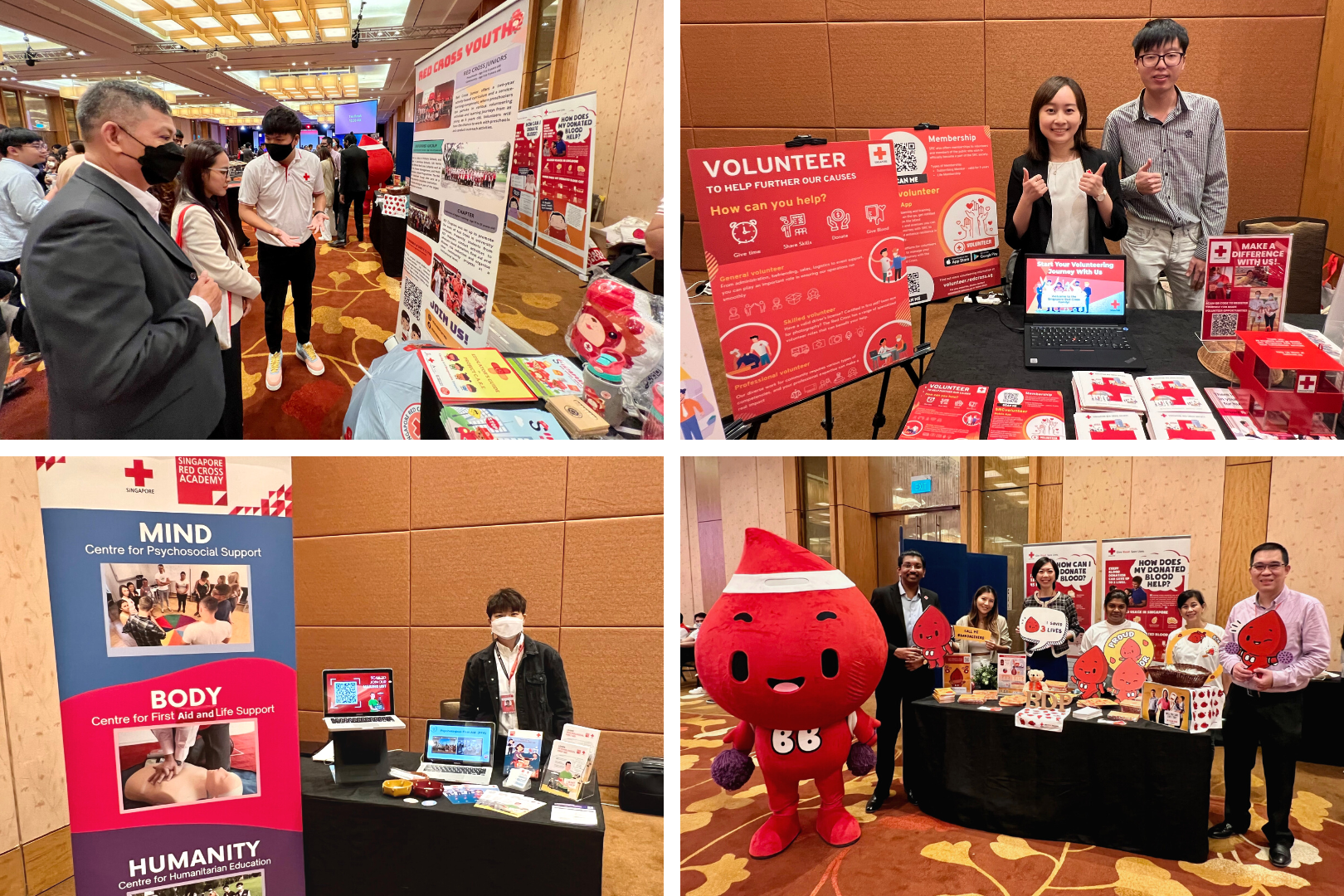
Read on for the highlights of keynote and plenary speeches on emerging challenges and resilience, as well as panel discussions on mental health and response to complex emergencies.
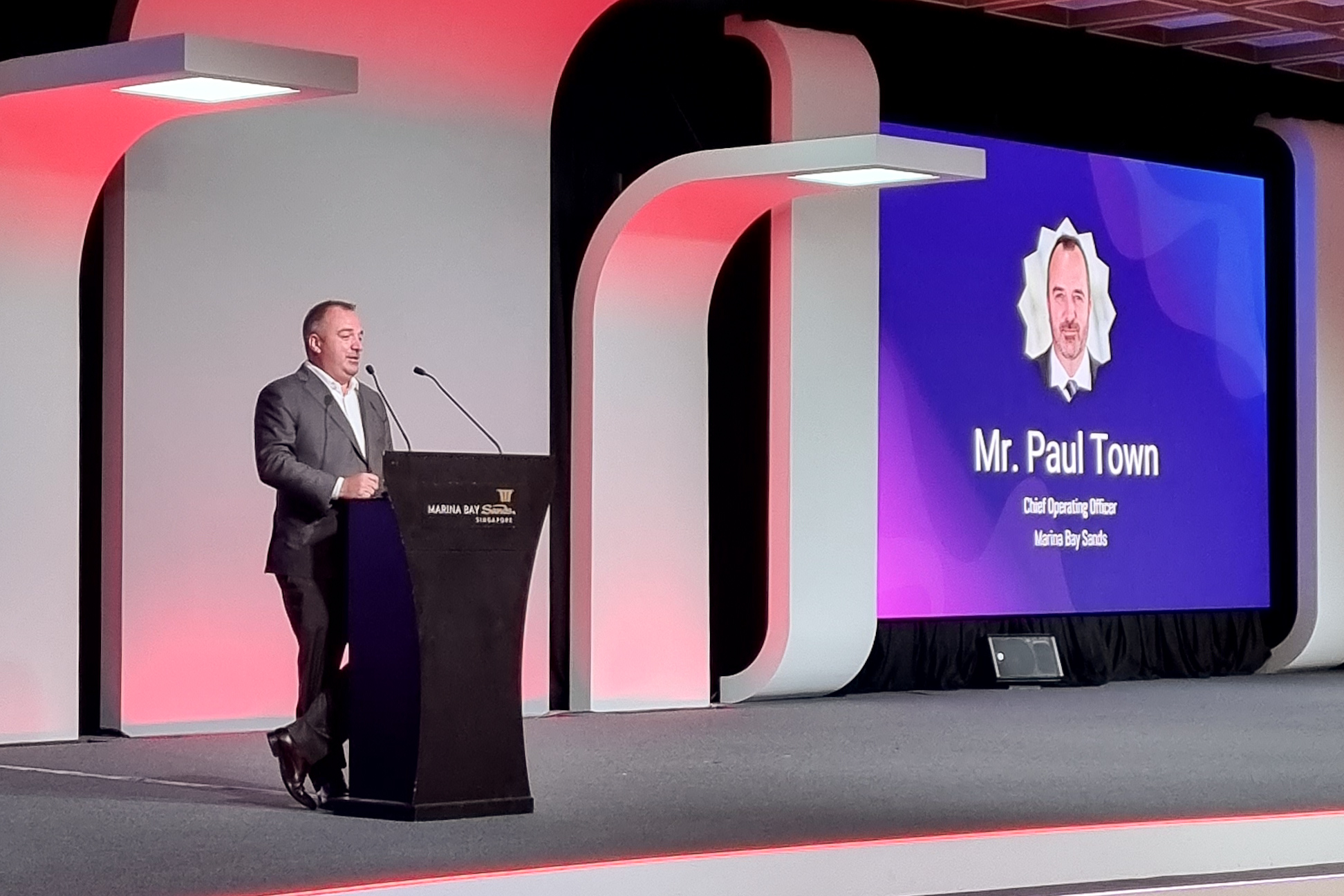
For two years, Marina Bay Sands (MBS) has extended venue sponsorship for the Humanitarian Conference. Mr Paul Town, Chief Operating Officer of MBS shared their corporate social responsibility efforts with the SRC; 24-hour 'Kit Packathon' to assemble 10,000 kits for migrant worker communities and low income families served by SRC, donation of nine ventilators for hospitals in the Indian state of Maharashtra and and Kerala, blood donation drives and Sands Cares Food Kit Build to pack food kits for beneficiaries of the Singapore Red Cross Young Hearts and Meals with Love programme.
“Over the years, we've fostered a really strong relationship with the Singapore Red Cross. We work together to support these local and regional outreach efforts. I'm confident that all of us gathered here today will bring valuable insights. The lineup of speakers and humanitarian actors who had selflessly steered Singapore and the international community through these tumultuous times. While it has been an exceptionally testing time over the past two and a half years, we've all come a long way in a fight against COVID-19 learning the importance of courage, resilience and kindness in building a more resilient society. Let's continue this and continue to uplift one another in these times of need and respond to the challenge of these crises together. Thank you all so much for joining us today. I hope you enjoyed today's conference. Thank you very much.”
Mr Paul Town, Chief Operating Officer, Marina Bay Sands
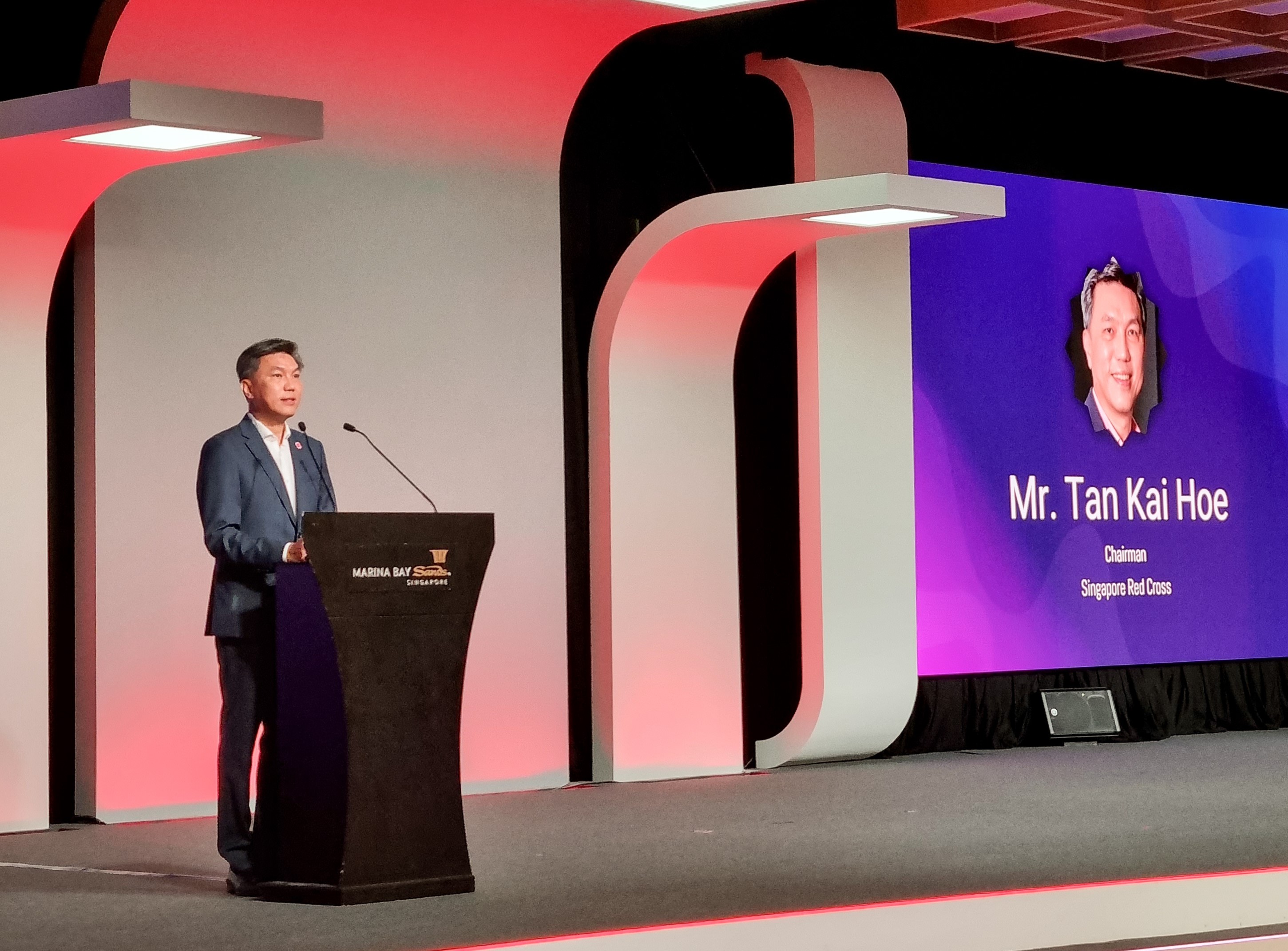
“When a crisis strikes, often, we as individuals or as communities rise up above ourselves — to go the extra mile, do much better than we thought possible, or to be creative and innovative to find solutions for seemingly intractable problems… We can learn from the experiences that we have gone through, the lessons we have learnt, and how we can be better prepared, not only in our response to crises, but even in our day-to-day operations.”
Mr Tan Kai Hoe, Singapore Red Cross Chairman
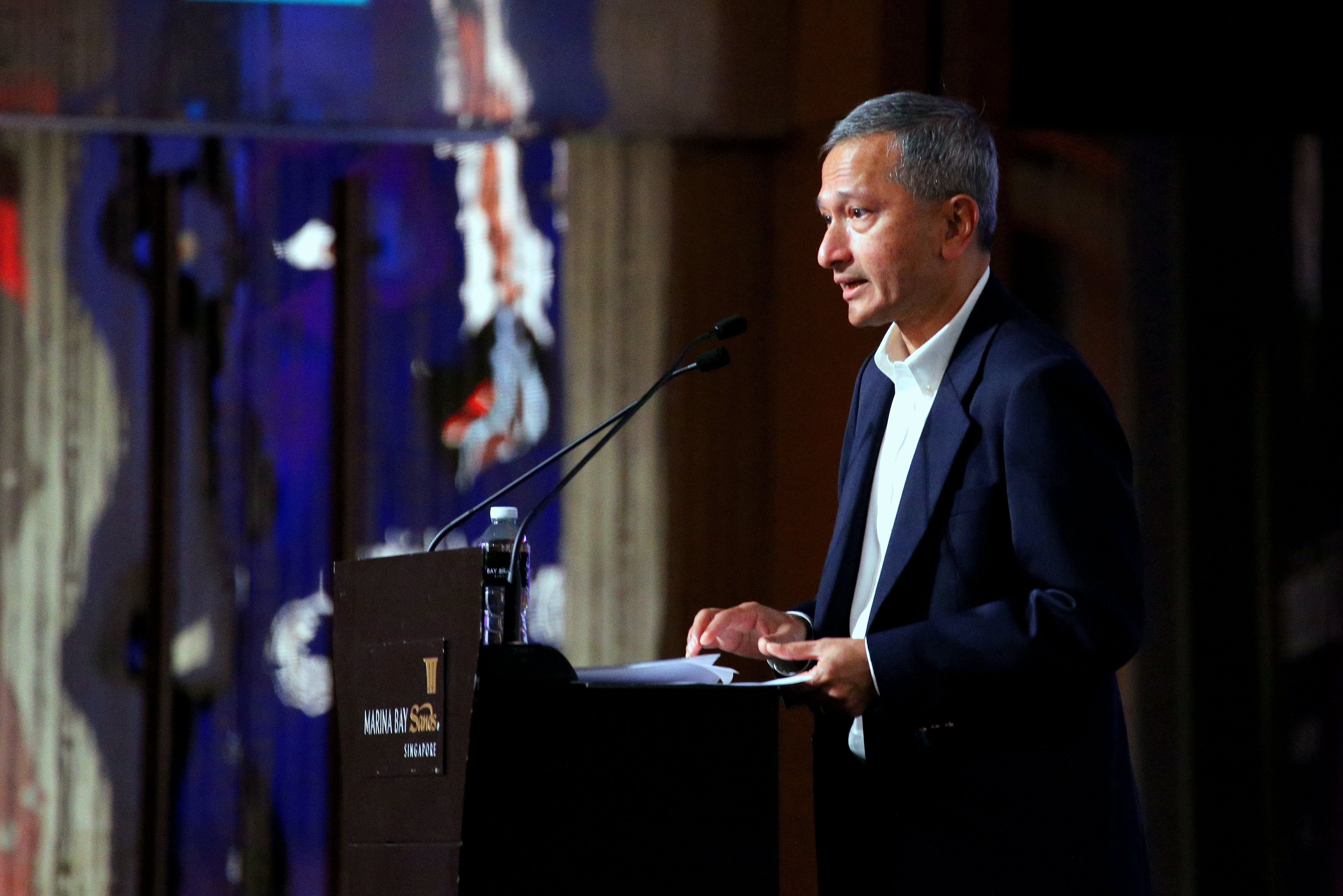
Headlining the Conference is keynote speaker, Guest-of-Honour, Minister of Foreign Affairs, Dr Vivian Balakrishnan, who shared insights on the emerging humanitarian challenges, and ways we can be better prepared for the future. He said the experience, networks and lessons learnt from COVID-19 will help Singapore tackle future pandemics as well as challenges such as climate change. See his speech.
He said, “I express, on behalf of the Singapore Government, our appreciation to all of you from the Singapore Red Cross for the work you have done locally, regionally and internationally because you are on the frontlines of these many humanitarian crises, some of them natural like floods, droughts and storms. Your power lies in your commitment to our common humanity - to be there at the point of greatest need, to reach out to victims of natural and human disasters.
We have been through perhaps the worst pandemic in a century, but this is not the first, this is not the last and this is not the most severe virus confronting humanity. And frankly, my own view is that this is a full dress rehearsal and there's likely to be more and worse to come.
Therefore, everything that we do now, in terms of building a network, mobilising resources and volunteers and working with each other is absolutely essential. We cannot afford to take our eyes off the ball.
The world is a more volatile place. This combination of geopolitics, economic problems, and environmental problems is existential… All these factors are interacting in a vicious spiral and one crisis makes the next even worse… The broader question is: How can we urgently reorient our multilateral institutions to meet the challenge that we will face today and tomorrow? There is no need to reinvent the wheel. We do have a multilateral world, multilateral systems, institutions and Cabinets. But we need to be far more nimble, and far more networked… and we need to be able to bring together different structures and stakeholders so we can be far more effective.”
Dr Vivian Balakrishnan, Singapore’s Minister for Foreign Affairs
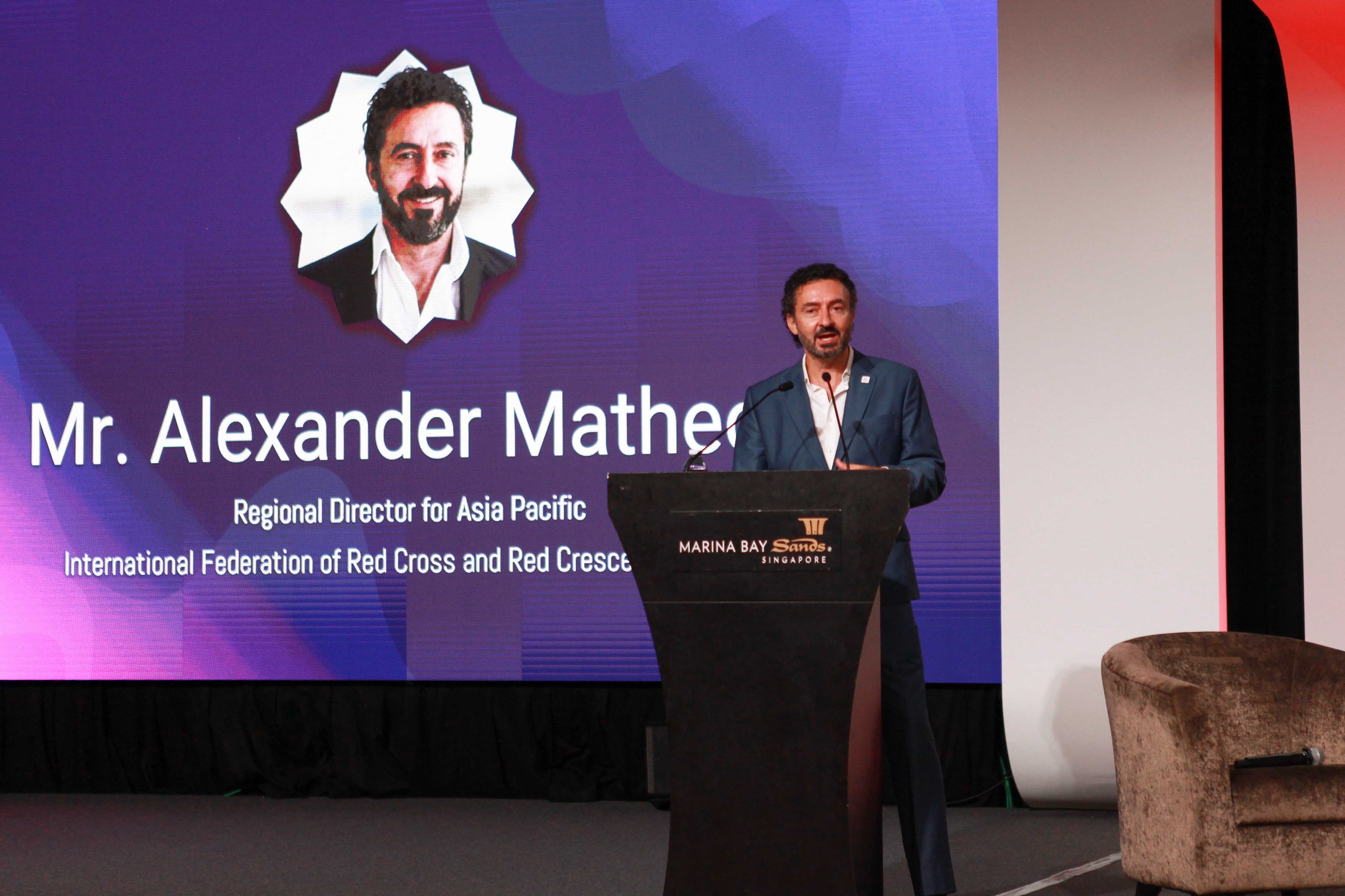
Mr Alexander Matheou, Regional Director for Asia Pacific International Federation of Red Cross and Red Crescent Societies, shared the Red Cross and Red Crescent Societies' response to the COVID-19 pandemic and natural and man-made disasters around the world, such as the Pakistan floods, political crisis in Myanmar and Afghanistan, and the Ukraine war.
“Singapore Red Cross continues to reach out in solidarity, mobilising support. We need that because if we give up hope, if we stop feeling empathy for our fellow human beings, if we start realising that the crisis hits one place, one day, it can easily pass the next. We're stronger together. If we can get to that point, institutions can continue to bring hope, and continue to help even if it is a struggle in the operations of the Singapore Red Cross. Thank you very much to my colleagues from the other Red Cross and Red Crescent Societies for continuing to deliver services in spite of the difficult environments.”
Mr Alexander Matheou, Regional Director for the Asia Pacific, International Federation of Red Cross and Red Crescent Societies
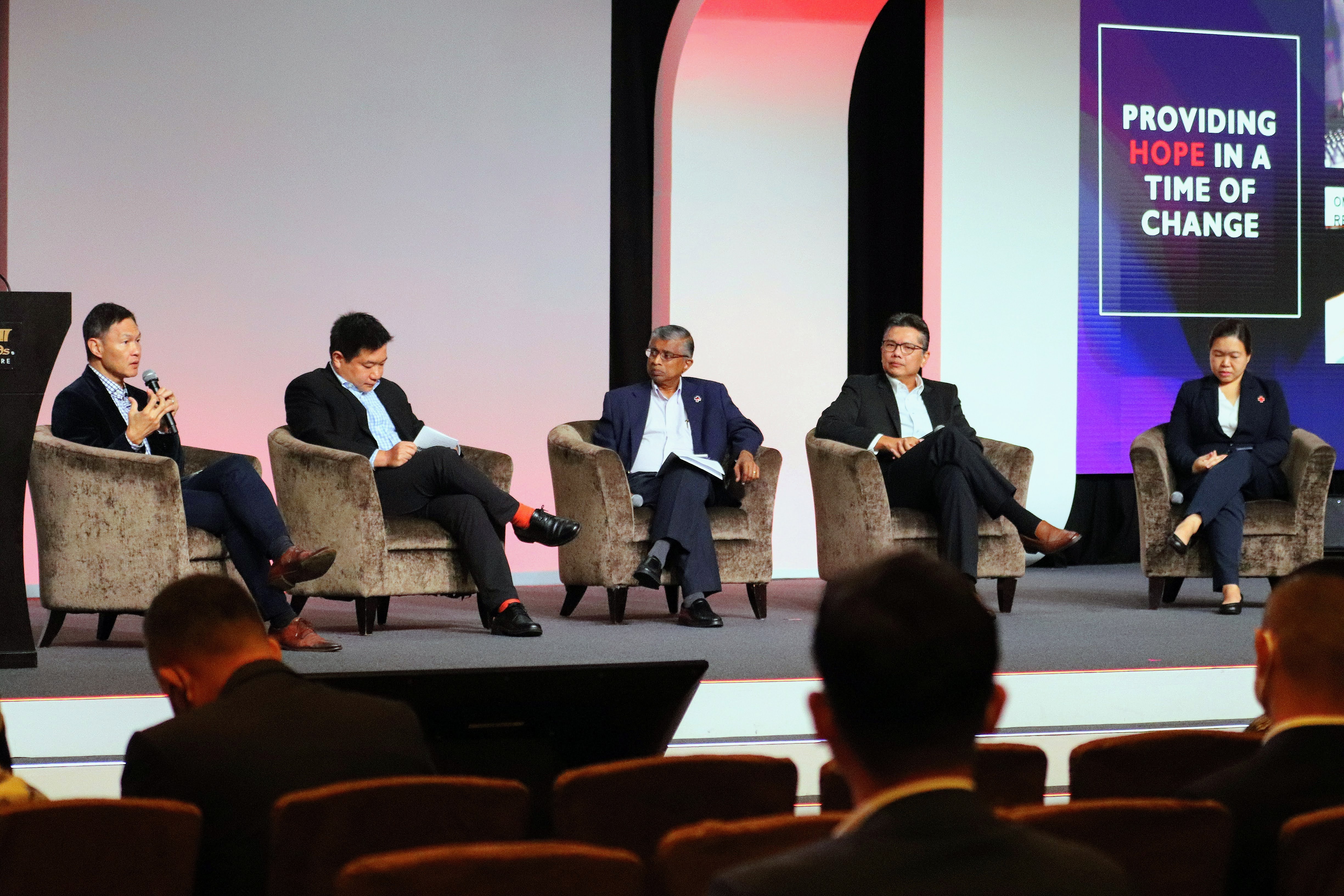
In a panel discussion moderated by Mr Benjamin William, Secretary General / CEO of Singapore Red Cross, Mr James Tan, Chief Executive Officer, TOUCH Community Services, Mr Phua Chun Yat, Chief Operating Officer, Samaritans of Singapore and Mr Michael Cheah, Executive Director, HealthServe and Ms Carmen Wong, Head of Centre for Psychosocial Support, Singapore Red Cross Academy came together for an inspiring and insightful panel discussion on mental health and well-being. The panel discussion underscored the challenges that stoked mental stress in our society. Besides sharing how they stepped up to the plate to respond in the respective communities they serve, they also shared the lessons learnt and insights gleaned, ways to identify gaps, overcome mental health challenges, and measures adopted to better care for people facing mental health issues, in the throes of the ongoing pandemic. These efforts are targeted at ensuring the mental well-being in people's daily lives while assisting those in need.
“There was a concern about contracting COVID-19, which really put a lot of stress on people. We have challenges with infrastructure, connectivity, and restrictions on engaging the community. When the nation went into lockdown, we procured laptops for children. There was caregiver stress. We provided financial aid and created job opportunities. We also implemented exercise programmes for the elderly. There were some counselling programmes and mental health programmes on online platforms. There are not enough volunteers to help everyone. We can only help those who need more help and who are in dire states. One of the things we want to do as an organisation is to equip beneficiaries with basic help to help themselves. The virtual platform was equally important. We need to improve on our infrastructure and improve our engagement so that we can better support people out there.”
Mr James Tan, CEO of TOUCH Community Services
“The worrying trend is that suicides have increased by about 23 per cent over the last year. This is the highest since the year 2000. When people are in distress, there is no better person to talk to but themselves. When families lose a loved one to suicide, it is very sad and very traumatic. Amid COVID-19, we leveraged online and media platforms strategically to share messages and videos to mitigate the stigma of seeking help for mental health issues. We sent a message that "you are not alone" on media platforms to normalise conversations. We can undertake prevention measures. Besides deploying volunteers onsite to provide people with support, we leveraged online platforms and WhatsApp amid the COVID-19 pandemic to engage and share messages with people that they are not alone. We explored ways to build support structures for them. We engaged local artistes to perform and share their experiences of mental health. As we continue to do this, more people will realise that it is safe to talk about this vulnerability, talk about suicide and seek help so that we can see hope for the future.”
Mr Phua Chun Yat, Chief Operating Officer, SOS Samaritans of Singapore
“The lockdown was challenging for the migrant workers. They were worried about not providing for their families back home. I remember I had a conversation with one of the workers. Before I went into the dormitory, one of the workers was not eating. He felt bad about eating when his family back home, his mother, wife and three children did not have food for the past two weeks. We are fortunate to get interpreters who understand the culture, language and nuances to communicate with the migrant workers. Communication was key. Calm, strategic communications will prepare people for what they are going to go through. It is important to integrate multiple cultures in Singapore.”
Mr Michael Cheah, Executive Director, HealthServe
“In May this year, I was in Poland with the Singapore Red Cross team in response to the Ukraine crisis. We procured essential supplies for the refugee camp and we had to transfer these supplies to a medical centre for the refugees. We met a driver, Darius, a Ukrainian who shared that his home, everything he had, was destroyed and his life was changed forever. He cried, and I realised I could provide psychological first aid to him. The power of humanity is highlighted. Whether it is the war in Ukraine or the different impacts of COVID-19, we see the power of humanity in action. People came together to forge human connections, so those affected can gather the strength, courage and resilience to move forward with hope. People can benefit from mental and emotional support. The theme of this Humanitarian Conference is anxiety and hope. I hope that apart from understanding the impact and gleaning lessons, we can foster partnerships to move forward.”
Ms Carmen Wong, Head of Centre for Psychosocial Support, Singapore Red Cross Academy
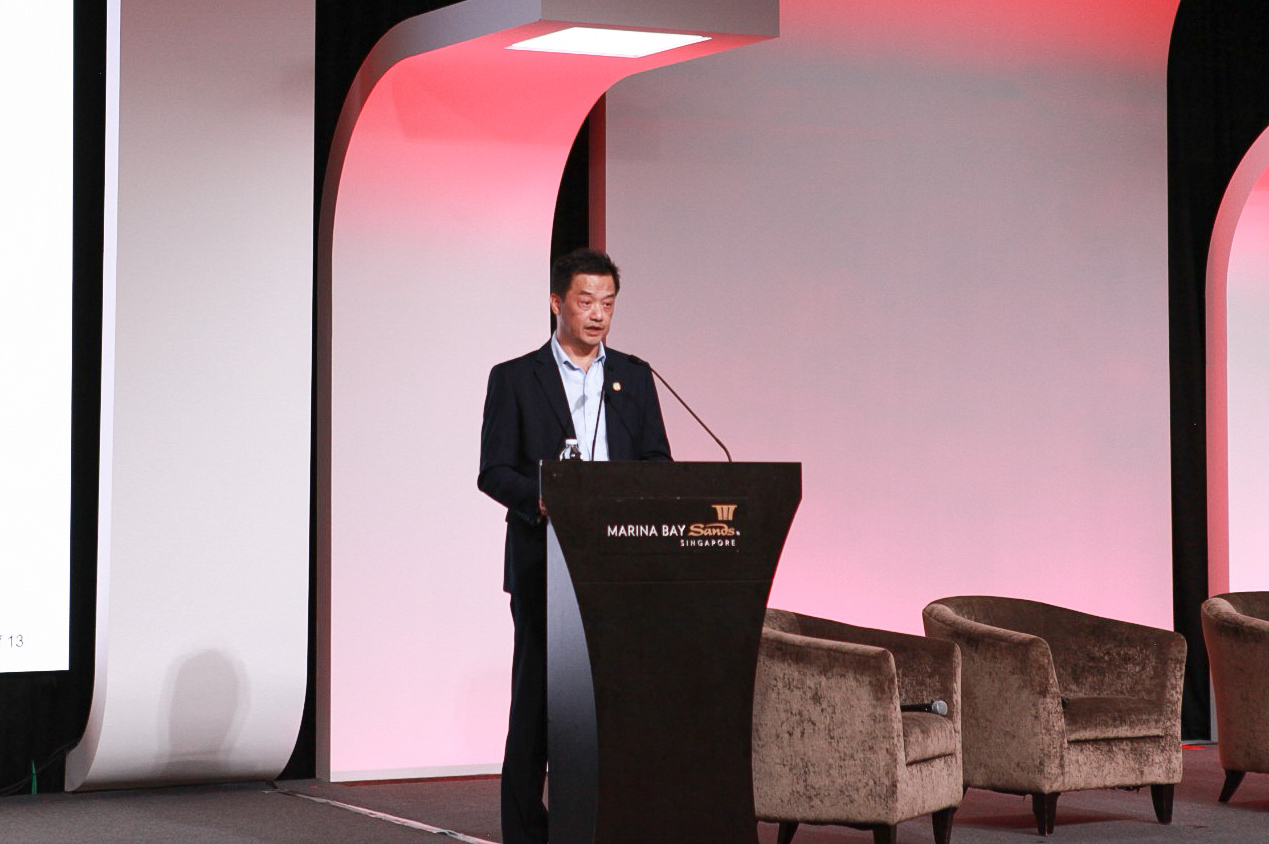
Temasek Foundation's Chief Executive Officer, Mr Ng Boon Heong, shared how Temasek Foundation distributed items such as reusable masks and mouthwash to protect the Singapore community and also supported countries in the region with essential and medical supplies in their response to COVID-19. Mr Ng also shared how companies can make a positive impact on communities locally and internationally through their corporate social responsibility efforts.
“Everyone can and must do their part for the global common good and resolve the complex problems of today. The problems tomorrow cannot be solved by a single organisation or a single country. There is a need to collaborate; grow these partnerships with the private sector, government, organisations and the larger community in Singapore. We can only prepare for what the future brings. We cannot predict what will happen. To prepare well, we need to collaborate well together. The viruses today and tomorrow will not respect borders. It is important that we see beyond borders and work together. Only by putting our heads and hearts together will we have a fighting chance against the next pandemic.”
Mr Ng Boon Heong, Temasek Foundation's Chief Executive Officer
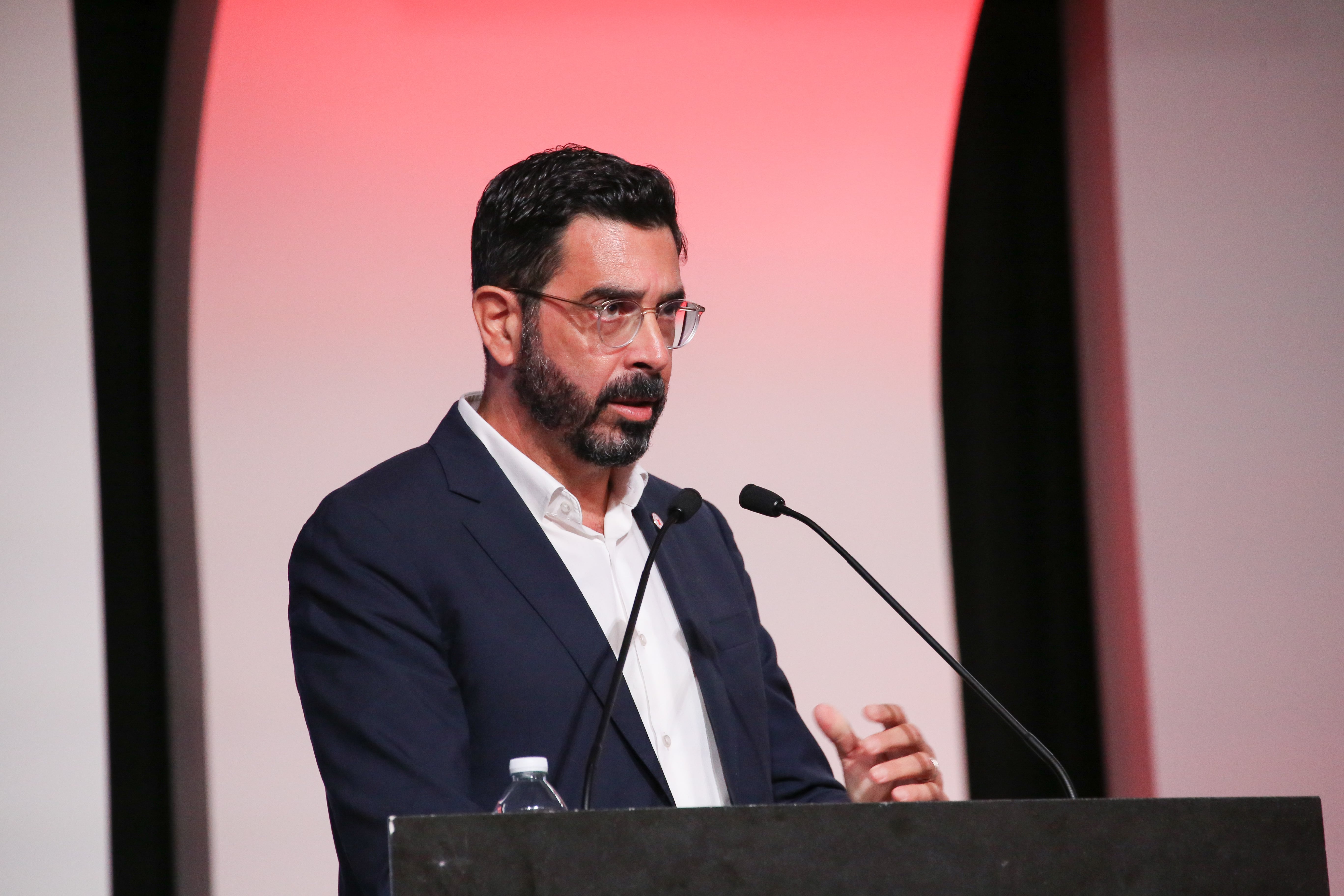
“Take a longer perspective to work out structural solutions to ensure that humanitarian action is not seen as a substitute for the provision of access to real social protection. Fixing mindsets that are biased towards addressing symptoms is integral. If you promote well-being, you'll need wisdom and insight into the individual's needs. Disease, symptoms and the promotion of well-being are key. These are important areas or priority areas you want to put your energies into. We live in a time of overwhelming humanitarian needs where there are multiple crises happening simultaneously and it can be very difficult to keep track of sometimes. Stay away from a very polarised and politicised humanitarian environment. Try to set that example by keeping the emphasis on dialogue and open exchange on those three things.”
Mr Omar Odeh, Head of Regional Delegation of the International Committee of the Red Cross in Kuala Lumpur
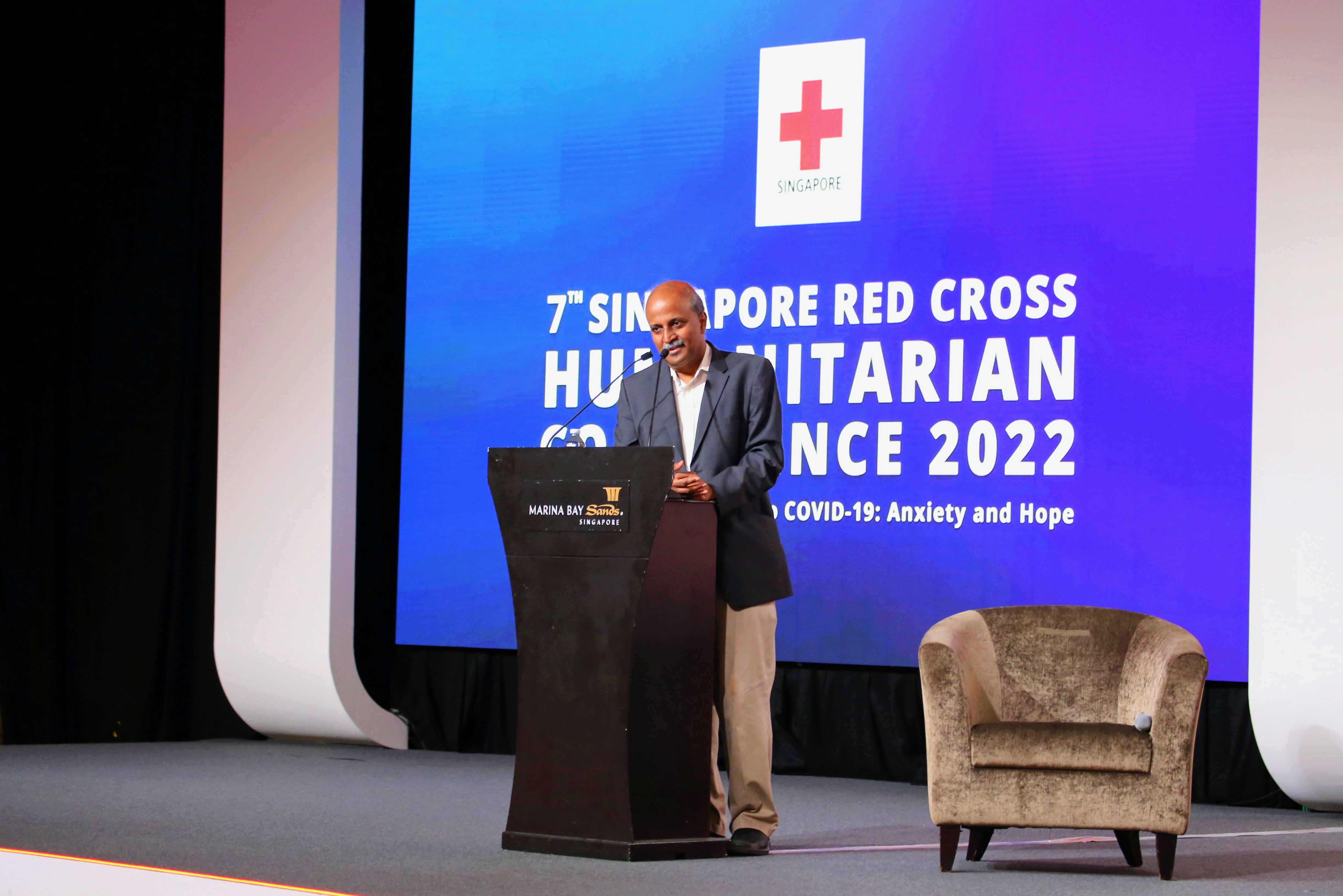
Dr Paul Tambyah, Senior Consultant in Division of Infectious Diseases at National University Hospital, Incumbent President of the Asia Pacific Society of Clinical Microbiology and Infection and also President-elect of the International Society of Infectious Diseases, shared key takeaways from the ongoing COVID-19 pandemic, and past pandemics such as Ebola, Zika Virus, Polio, and the Spanish flu. He also provided advice on how Singapore and the region can work better together to overcome the challenges wrought on by future epidemics.
“We need to examine our practices and ensure that they are based on the best scientific evidence. We can look for trends. We can investigate each case to see if there was some contamination problem… Singapore is one of the world's most globally connected cities. Singapore experienced every pandemic in 1918, 1957, 1968, 2009, and 2019. In the next two to three years, we will get another flu pandemic. It's going to happen and we are going to pick it up, identify it and adapt to change. There is no substitute for being on the ground, listening to people and just doing the right thing.”
Dr Paul Tambyah, A Professor of Medicine at the Yong Loo Lin School of Medicine, President of the Asia Pacific Society of Clinical Microbiology and Infection and President-elect of the International Society of Infectious Diseases
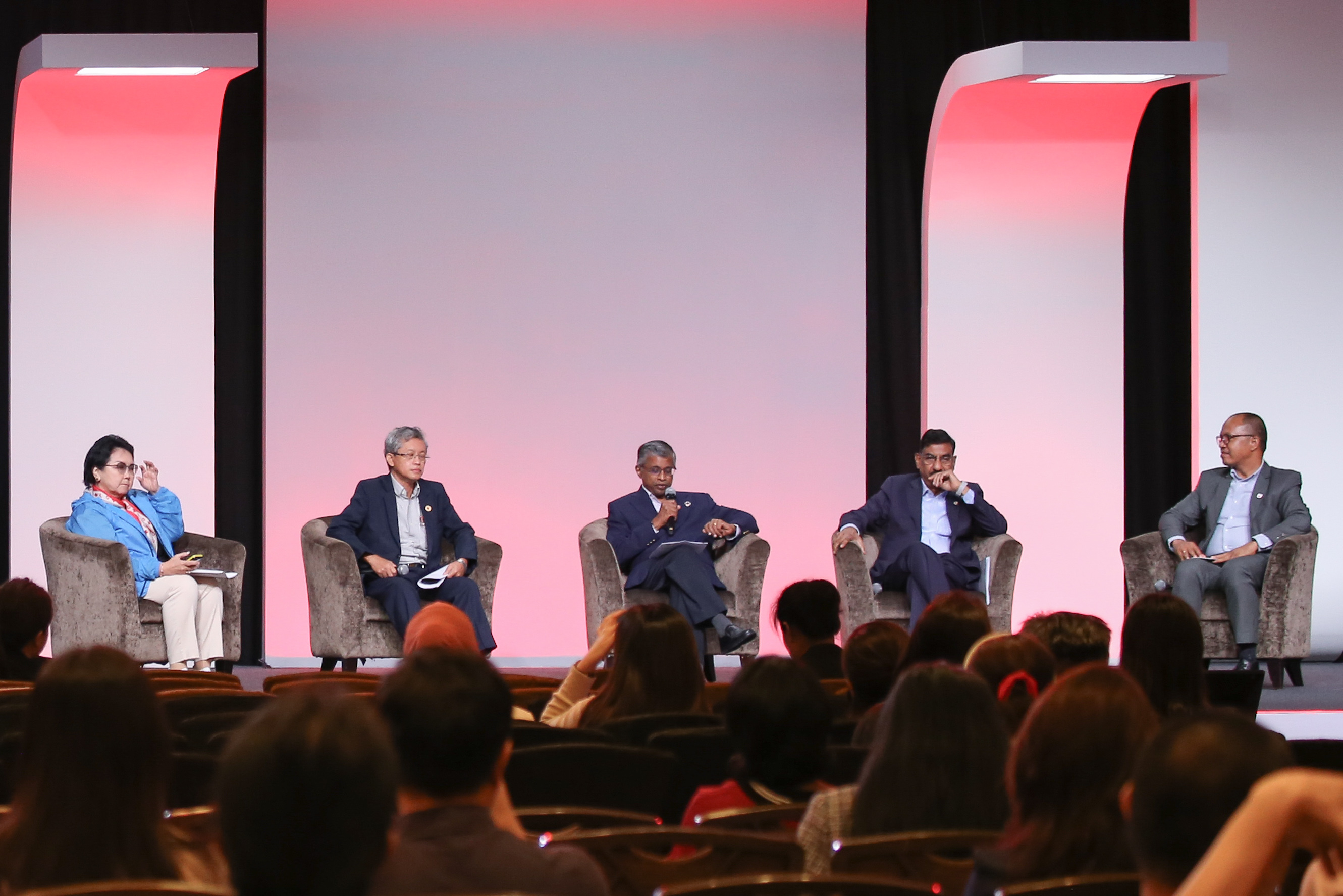
Ms Bolormaa Nordov, Secretary General, Mongolia Red Cross Society, Prof. Dr Htin Zaw Soe, Secretary General, Myanmar Red Cross Society, Mr R.K. Jain, IAS (Retd.), Secretary General, Indian Red Cross Society, and Mr Luis Pedro, Secretary General, Cruz Vermelha de Timor-Leste had a robust discussion on how they responded to the COVID-19 pandemic amid civil unrest and natural disasters, in a panel discussion moderated by Mr Benjamin William, Secretary General / CEO, Singapore Red Cross.
Innovation, Partnership, Volunteerism, Leadership and Capacity Building
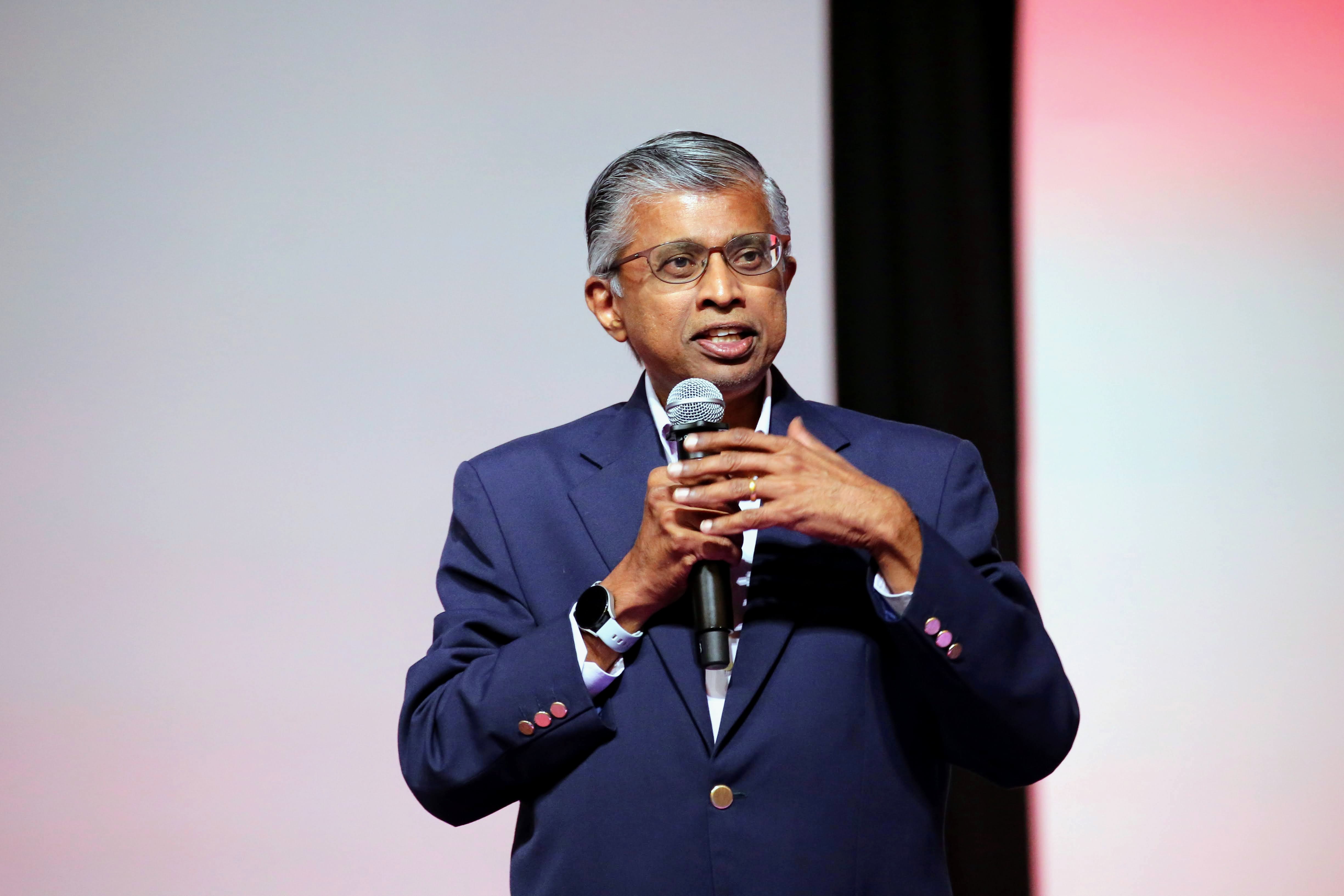
In his closing remarks, Mr Benjamin William, Secretary General / CEO of Singapore Red Cross said, “We have experiences in different areas. But if we put our strengths together, we will be much stronger together. We have learnt a lot from all the speakers and panellists and the National Societies. COVID-19 has emphasised that we are One Humanity. A catchphrase of the Red Cross Red Crescent Movement a few years ago was the 'One Billion Coalition for Resilience'. Human challenges are too great for us to tackle alone, and we need to bring everyone on board. COVID-19 is a good reminder that we need to strengthen our partnerships with the private sector. Volunteerism and leadership are very important. However, leadership can only be manifested by the Red Cross if we can build capacity. We need to invest a lot in capacity-building. We should also empower our youth leaders to focus on innovations in climate change, sustainability and mental well-being.”
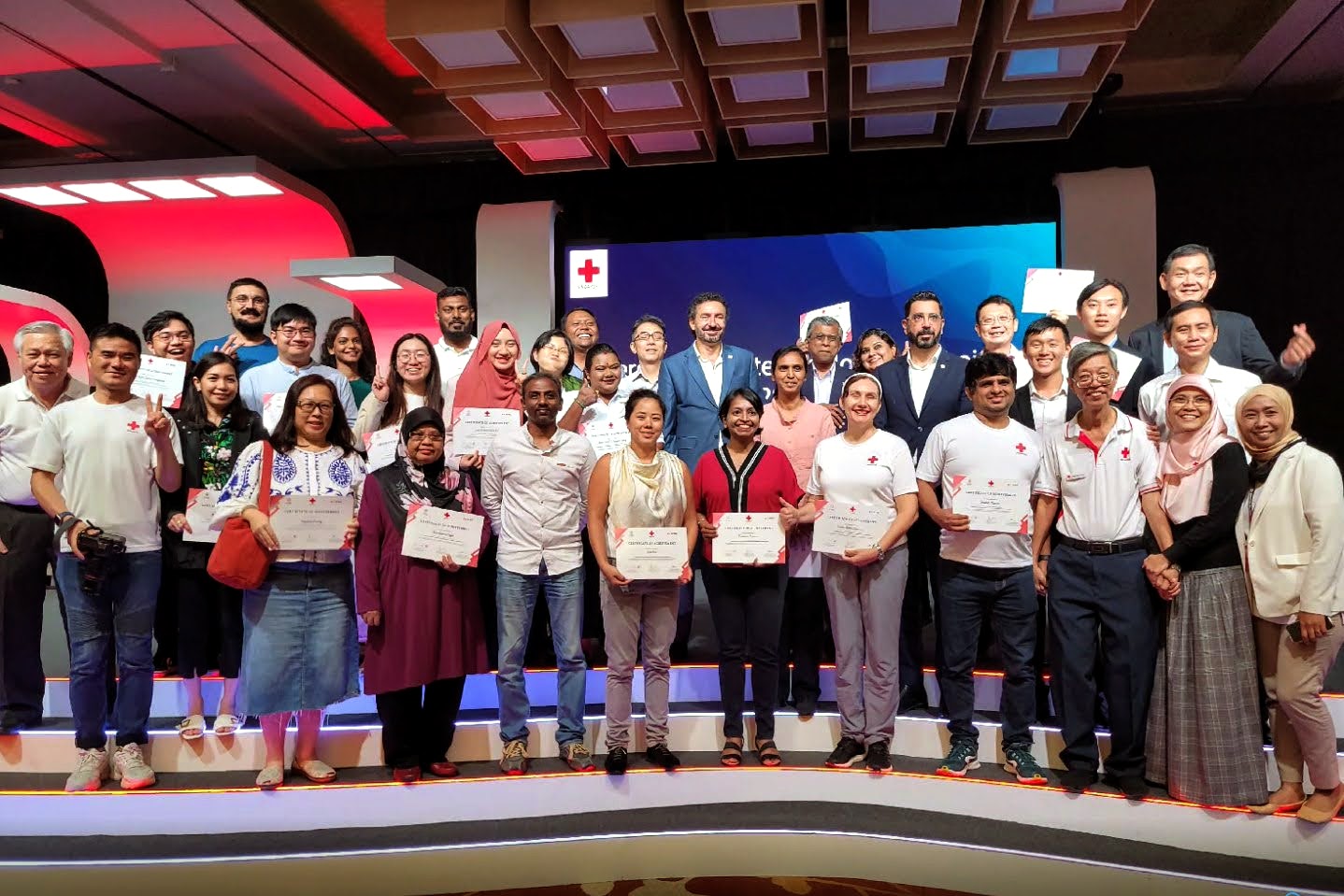
The event concluded with a beautiful reunion of volunteers onstage. Congratulations to all the participants who had completed the Overseas Disaster Deployment Training programme in 2020, 2021, and 2022!
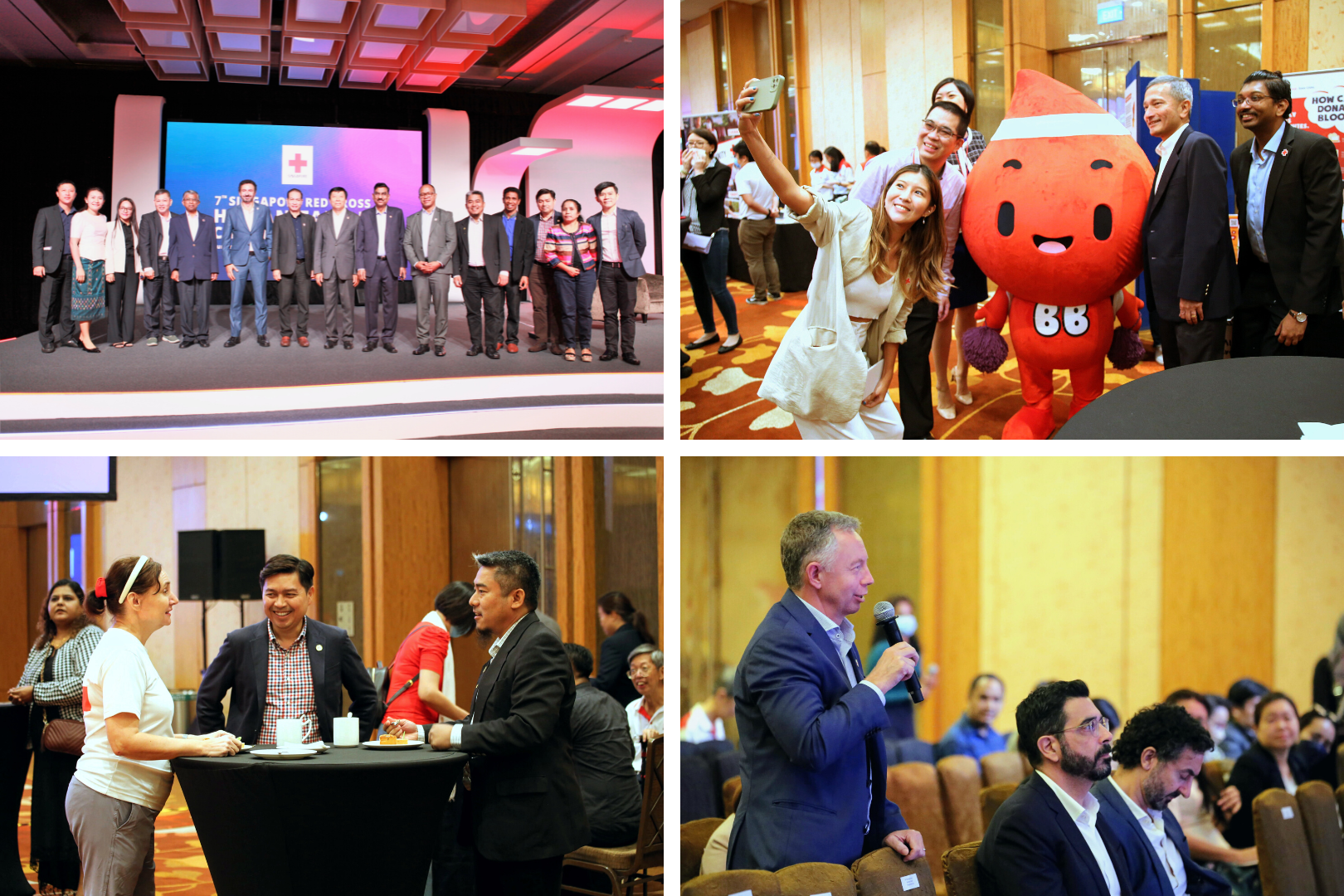
Photos by Wong Leong Jeam and Patrick Xu, Volunteers

